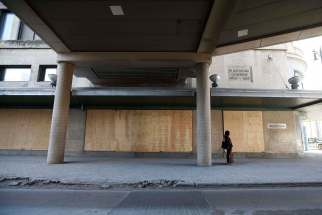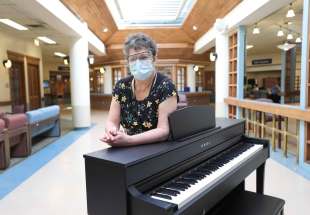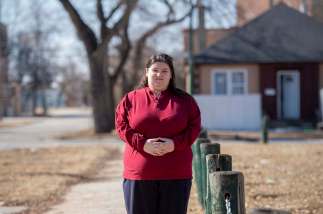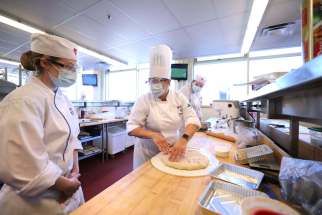Compassion amid the calamity Residents, families and administrators praise personal-care, supportive-housing and assisted-living facility staff for endless hours of pandemic work
Read this article for free:
or
Already have an account? Log in here »
To continue reading, please subscribe:
Monthly Digital Subscription
$0 for the first 4 weeks*
- Enjoy unlimited reading on winnipegfreepress.com
- Read the E-Edition, our digital replica newspaper
- Access News Break, our award-winning app
- Play interactive puzzles
*No charge for 4 weeks then price increases to the regular rate of $19.00 plus GST every four weeks. Offer available to new and qualified returning subscribers only. Cancel any time.
Monthly Digital Subscription
$4.75/week*
- Enjoy unlimited reading on winnipegfreepress.com
- Read the E-Edition, our digital replica newspaper
- Access News Break, our award-winning app
- Play interactive puzzles
*Billed as $19 plus GST every four weeks. Cancel any time.
To continue reading, please subscribe:
Add Free Press access to your Brandon Sun subscription for only an additional
$1 for the first 4 weeks*
*Your next subscription payment will increase by $1.00 and you will be charged $16.99 plus GST for four weeks. After four weeks, your payment will increase to $23.99 plus GST every four weeks.
Read unlimited articles for free today:
or
Already have an account? Log in here »
Hey there, time traveller!
This article was published 09/04/2021 (1707 days ago), so information in it may no longer be current.
It was the fax that changed everything.
“I’ll never forget that gut-wrenching feeling when the case came back positive,” says River East Personal Care Home administrator Kim Rohm, thinking back to Nov. 12.
“We were surprised.”
A couple of days earlier, one of the 120 residents experiencing possible symptoms of COVID-19 was tested. The symptoms disappeared the next day.
Then the fax arrived.
“We now had COVID in our building,” Rohm says. “The second case came shortly after. Then it ramped up quickly.”
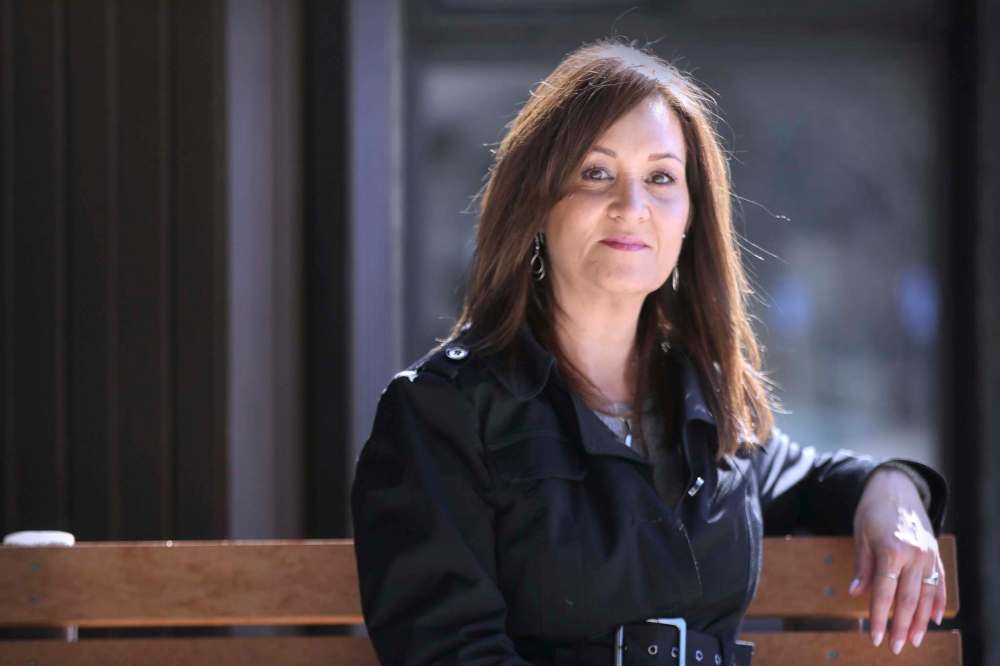
Despite their best efforts, during the first outbreak 17 seniors who lived at River East were infected and there were four deaths. Ten staff members also tested positive.
“(There was) excellent teamwork in our home and support of the WRHA,” Rohm says. “Without this, it could have been much worse.”
The Long Term and Continuing Care Association of Manitoba has launched a campaign recognizing staff at River East and dozens of other care facilities in the province for their efforts throughout the pandemic.
The organization is encouraging Manitobans to celebrate the people working in personal-care homes, supportive housing and assisted-living residences.
Association executive director Jan Legeros says some of those workers haven’t felt included when there have been organized campaigns to thank health-care workers. 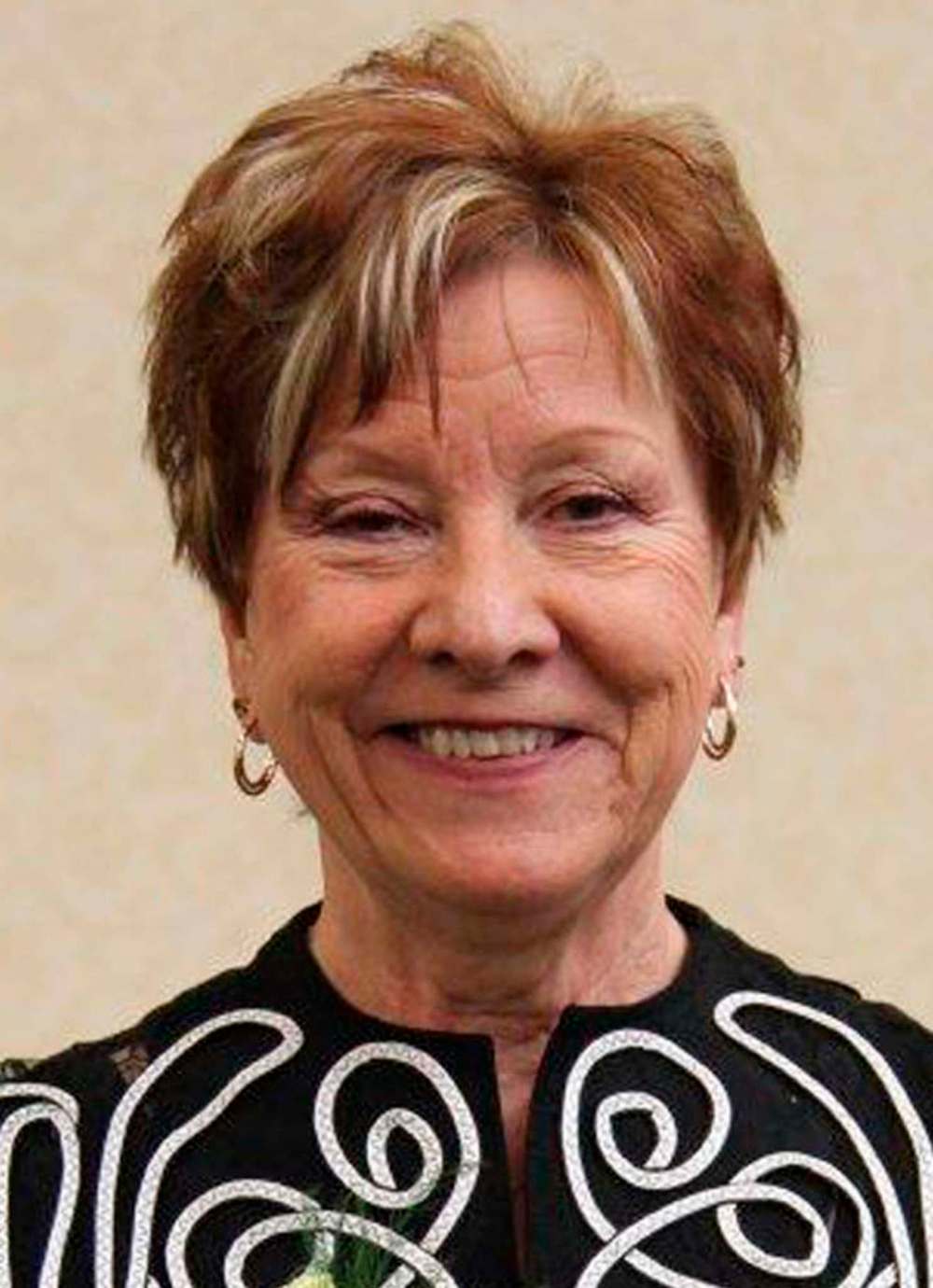
“(They) feel the phrase ‘health-care staff’ is referring to those who work in hospitals and not them,” she says.
“Our association was determined to change this perception. We know that all Manitobans are aware of the toll COVID-19 has taken and we felt sure they would want to participate in thanking these unsung heroes.”
Legeros says the easiest way to thank them is to go to the organization’s website and click on Unsung Heroes. People can share a message and leave video or audio clips to say thank you.
Since the pandemic began, there have been 2,300 diagnosed cases of COVID-19 linked to 104 outbreaks in 70 personal-care homes in the province. As of last week 1,546 residents had contracted the virus; 454 had died and there were four active cases.
And the virus has ravaged facilities’ staff; 754 tested positive and there has been one death.
“We never did entirely figure out how COVID got here,” says Rohm. “We now know it can be brought in by asymptomatic people, but we didn’t know that then.
“We never did entirely figure out how COVID got here. We now know it can be brought in by asymptomatic people, but we didn’t know that then.”– River East Personal Care Home administrator Kim Rohm.
“We always felt if (the virus) came into a personal-care home it would wipe everybody out, but the vast majority made it through. Many of them were asymptomatic. The hardest part was that asymptomatic lot. You had to treat it like it was an unseen enemy. You had to assume it was there at all times.”
That first outbreak lasted 105 long days and nights until health officials declared it over Feb. 22. Two residents tested positive during a second outbreak that began March 3, but no else became infected and there were no other deaths. It was declared over April 3.
“We were fortunate we have all private suites (rather than shared rooms), but it ended up being in two different areas here,” says Rohm.
“Everybody would be hovering by the fax machine waiting for results. There would be cheering when it was negative and tears when it was positive. It was very hard to deliver the news of a positive case.”
Across the province there are about 10,000 personal-care beds in approximately 130 facilities. Most of them — 99 residences and about 5,900 beds — are in Winnipeg. And 10 of about three dozen Manitoba supportive-housing facilities provide 528 suites in the city, as well.
And there are about 5,000 assisted-living suites in approximately 100 residences in the province.
In all of them, there are stories about staff members going above and beyond, to the point of exhaustion; filling in shifts when co-workers who had the virus or were awaiting test results were isolating. And doing things that aren’t listed in the job description. Changing kitty litter, for example.
“The families can’t come in and the families are the ones who clean out the kitty litter boxes.”– Riverwood Square manager Linda Sherrin.
“The families can’t come in and the families are the ones who clean out the kitty litter boxes,” says Linda Sherrin, manager at Riverwood Square on Pembina Highway.
“Now I have one or two people who get the kitty litter. It’s just the day-to-day out of the norm that people just do these days.”
The doors have been closed to most visitors, including the volunteers who entertain residents. That, too, has been added to the list of responsibilities of three of the facility’s staffers, Sherrin says.
“It’s just some of the little things you don’t think of,” she says. “It just happens.”
Frank Tervoort, 83, who lives at Riverwood with Joyce, his wife of almost 60 years, is grateful for the staff who have somehow kept the 240 people living in the complex from getting ill. There hasn’t been a single case of COVID-19 there.
“The three people who do entertainment are quite talented,” Tervoort says. “They also give us movies, playing bingo. Everyone is so wonderful here. They clean everything down here. You better believe I thank them — they have kept us safe.” 
At Fred Douglas Lodge on Burrows Avenue, an initial outbreak resulted in only one staff member testing positive. But that was followed by a second wave there and the story was much different.
Before it was declared over, 29 residents and 18 staff members tested positive. Nine of the residents died.
Karin Kilpatrick and her siblings helped their mother Shirley McMahon move in just before the province banned visits.
She says during the months the facility was in lockdown, she and other relatives would go to her mother’s window and staff on the other side would link them up on phones or tablets.
“The staff have been absolutely phenomenal,” she says, noting her mother got the virus, but has since recovered.
“I always got a call from my mother for my birthday and I thought, with everything going on, there’s no way I will get a call… but when I did talk to her the staff told her it was my birthday and she wished me a happy birthday. In the middle of a pandemic that’s going beyond the call of duty.”
Michele Barr, the facility’s co-ordinator of spiritual care, says she has gone from conducting services and bringing in clergy before the lockdown to screening staff and working with residents — even learning to feed puréed food to some. 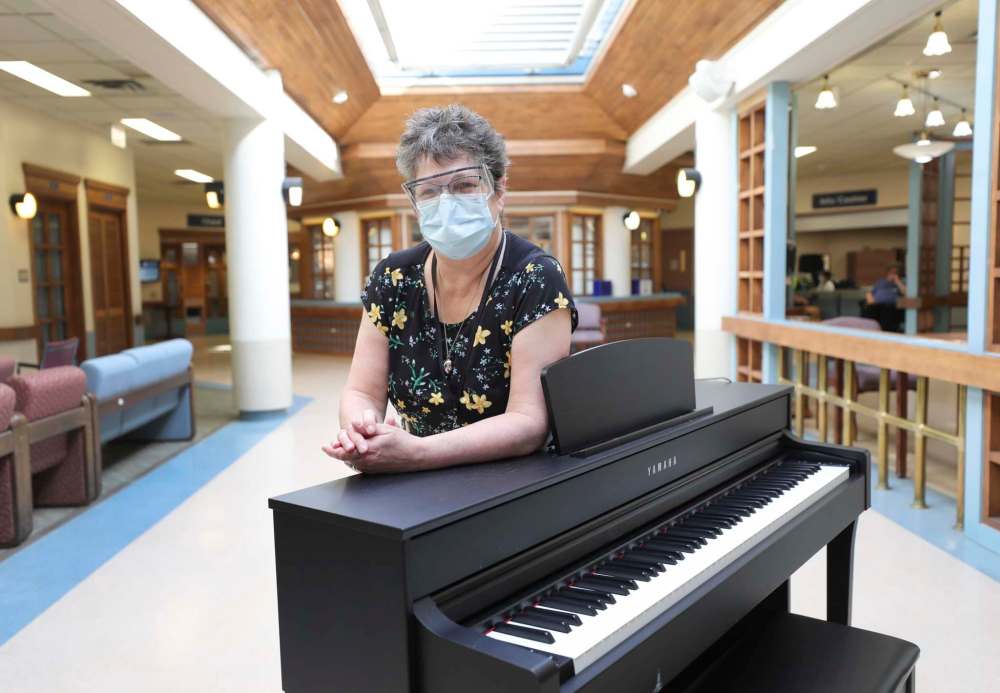
Barr says some staff are offering to help some of the women who live there while the regular hairdresser is prevented from visiting.
“Oh, man… old ladies with pony tails,” she says. “That’s a thing here now. “Everybody’s work has increased so much, but we’re not letting up.”
And, early on, Barr used her own cell phone to help residents communicate with worried relatives standing outside.
“(The residents) could look out the window and I would put it on speaker phone,” she says. “It was just heart-wrenching.”
Barr says it was difficult when the first case was confirmed in the facility.
“I cried when our first resident got it,” she says. “They are innocent people who didn’t do anything. I was afraid to go to work that next day, but then I thought I had already worked with them, so I came back.”
Beginning in 1978, Clare McCaw and her late husband Lloyd would evade Winnipeg winters by travelling to Barbados to bask in the sunshine and warmth. She had to rely on those warm memories while spending days on end in her room at the Riverside Lions Supportive Housing residence.
“It was very lonely,” the 91 year old says. “I have lots of family, but the family couldn’t come in here. It was like you were in jail.
“But I never got sick from the virus; maybe I should knock on wood.”
She says the people who work there are “so wonderful.”
“I thank the staff all the time,” she says. “This is a good place to be during a pandemic. But I’m hoping to be in Barbados next winter.” 
Gilles Pambrun, Riverside’s general manager, says the past year has been valuable for everyone who works there.
“We’ve learned to adapt both to help now, but also for a future pandemic,” he says. “It helps us help people.”
Top of mind is spending time with each of the 75 residents, he says.
“It is being one on one with them to help their mental health,” he says. “We spend a lot of time with each one. Before it was in a group, with 13 at a time, but now it is one on one. We had to; there were months where families couldn’t come into the building.”
At River East, Rohm says getting through the dark time was very much a team effort.
“The staff were scared at one point,” she says. “It was important to lead by example.
“They would see one of the leadership team wearing PPE go into a room with a senior with COVID, so they would say, ‘If they are safe, then I must be safe, too.’ And it was the leadership team who took all the extra stuff off the front-line staff. We had a sign-up sheet. We assisted elders with their meals.
“If there was a need somebody just did it.”
kevin.rollason@freepress.mb.ca

Kevin Rollason is one of the more versatile reporters at the Winnipeg Free Press. Whether it is covering city hall, the law courts, or general reporting, Rollason can be counted on to not only answer the 5 Ws — Who, What, When, Where and Why — but to do it in an interesting and accessible way for readers.
Our newsroom depends on a growing audience of readers to power our journalism. If you are not a paid reader, please consider becoming a subscriber.
Our newsroom depends on its audience of readers to power our journalism. Thank you for your support.
History
Updated on Saturday, April 10, 2021 11:15 AM CDT: Corrects typo.

